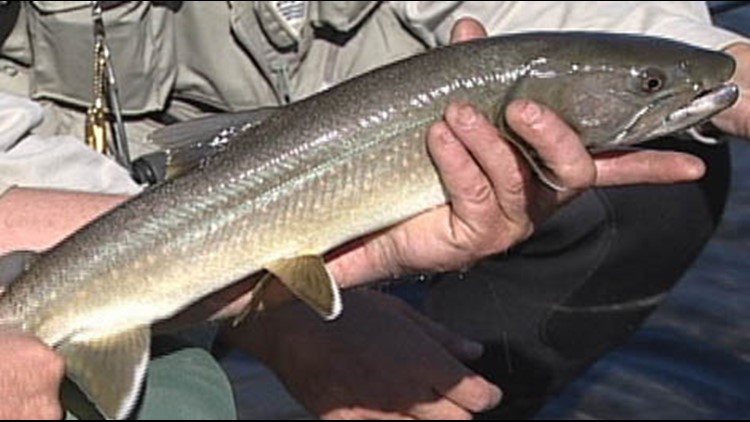SALEM, Ore. (AP) — Ranchers and the federal government have defeated a 15-year-old environmentalist lawsuit that claimed grazing imperils threatened bull trout in Oregon's Malheur National Forest.
U.S. District Judge Michael Mosman has dismissed the complaint, which was originally filed by the Oregon Natural Desert Association and the Center for Biological Diversity in early 2003.
The environmental plaintiffs sought to prohibit livestock grazing on "units of concern" in seven allotments along the Malheur and North Fork rivers, arguing the waterways contain only 100 bull trout despite having the capacity for 4,000 of the protected fish.
Last year, however, U.S. Magistrate Judge Paul Papak dealt the case a blow when he found that grazing authorizations hadn't likely caused the decline in bull trout populations, which have suffered from the introduction of non-native fish, dam-building and other factors.
Mosman has now agreed with the recommendation to throw out the lawsuit because the plaintiffs haven't established the U.S. Forest Service violated the National Forest Management Act and Wild and Scenic Rivers Act by approving grazing plans.
Mac Lacy, attorney for ONDA, said the group is still reviewing the decision but is disappointed the "court failed to explain why it was reasonable for the Forest Service to collect, but then ignore" data regarding "riparian management objectives" under the agency's strategy for preserving inland fish.
Ranchers who rely on the grazing allotments, which span tens of thousands of acres, intervened in the case to defend the government's grazing authorizations.
A major point of contention in the case was whether the Forest Service was properly monitoring stream conditions to ensure grazing doesn't degrade the bull trout's habitat.
Lacy had argued the agency was relying on "proxy" data — such as grass stubble height and alteration to stream banks — that didn't reflect worsening conditions in the waterways.
"These failures, to the extent they're showing up in the record, are getting worse over time," Lacy said during oral arguments last year.
Egg nests laid by bull trout are trampled by cattle, which also raise water temperatures to unhealthful levels by widening streams and denuding vegetation, the plaintiffs claimed.
Stephen Odell, attorney for the Forest Service, countered that the environmental plaintiffs were "cherry-picking" data from problematic "hot spots" that don't represent broader conditions.
Forest Service scientists have determined streambank alteration and stubble height are useful measures of progress that show conditions are improving, he said.
"The record does not show ongoing negative effects from grazing," Odell said during last year's oral arguments.
Over the objections of the environmental groups, both judges overseeing the case agreed the Forest Service was permitted to analyze habitat health on the "watershed or landscape scale, rather than stream by stream."



